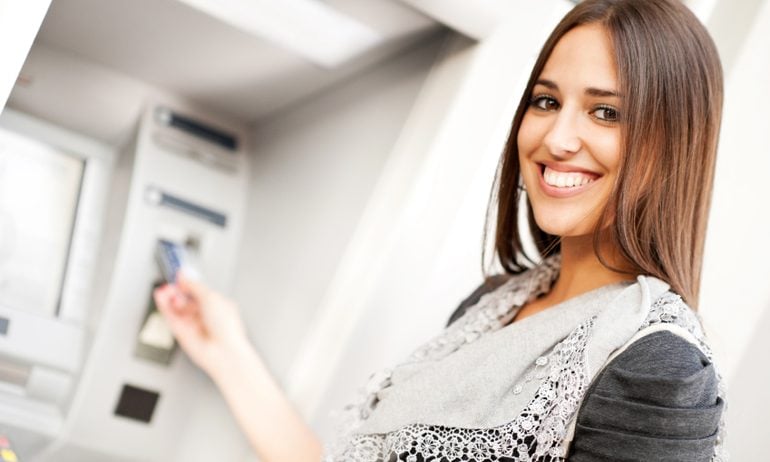How to Choose a Bank After College

Many, or all, of the products featured on this page are from our advertising partners who compensate us when you take certain actions on our website or click to take an action on their website. However, this does not influence our evaluations. Our opinions are our own. Here is a list of our partners and here's how we make money.
After graduation, the world of responsibility is easier to tackle when you have the best graduate bank account on your side. If your next chapter calls for a new bank, here are some things to consider.
Switch or stay?
You've grown up and so, too, must your bank account. Most student accounts come with an age limit or will expire four or five years after they were opened. Once you no longer qualify, most banks and credit unions will roll your student version into a standard account that may have new requirements and fees.
If you're happy where you are and your bank and its accounts fit the next phase of your life, great. If not, or you're unsure, consider what else is available.
» MORE: How to choose a bank
Types of banks to consider
Where you move your money will depend on what's next for you and how you like to do things.
National banks are travel-friendly, and they offer more products. If you plan to travel or aren’t sure where you’ll live next, you may want to consider a national bank; they have more branches across the country. National banks also offer a variety of products, if you prefer to keep all of your accounts under the same roof.
Credit unions and community banks value personalized customer service. If you're staying local, consider these institutions, which have earned strong marks for customer service.
Online banks provide strong technology, lower fees and excellent rates. Try an online-only bank if you prefer banking on your computer or mobile app. Online banks offer higher rates on savings because they don’t have the financial burden of physical branch locations.
Whichever you choose, check the bank's ATM network and policies to ensure that you’ll have access to cash wherever you go and that fees are low or reimbursable. And look into its online and mobile offerings for features like bill pay, mobile deposits and person-to-person payments.
Don’t feel pressured to choose only one institution. You can mix and match accounts to fit your needs and to get the best deal.
» MORE: The best online banks
Types of accounts to consider
When you start working, it’s time to establish smart money habits. Depending on your financial goals, some of these accounts could merit a closer look.
A low-fee checking account that minimizes costs. You can keep it simple with a free checking account. Or, if your account has fees, find out the bank's requirements for getting them waived, such as setting up direct deposit of your paycheck or making a certain number of debit card purchases each month. Look for a lenient overdraft policy in case you spend more than you have.
A low-fee savings account that grows your money. Savings accounts come in three varieties: basic savings accounts, money market accounts and certificates of deposit. You can find the best interest rates in an online savings account or a CD. Just be aware that with the latter, you commit to not touch your money for a set period of time.
» MORE: How to choose a bank account
Open the new account
To open a new account, you’ll likely need to provide your Social Security number as well as photo identification, such as a driver’s license, state ID card or passport, though requirements may vary by institution. To start, make a small initial deposit into your new account while keeping your old account active. Doing so will allow you time to switch any automatic bill payments to the new account.
Change your settings
Once you have a new bank account, switch account information on any direct deposits or automatic bill payments and update any linked accounts on shopping websites. Depending on your bank's policies, a forgotten automatic payment could cause your old account to remain open and incur fees. During the transition, keep a close eye on the old and new accounts to avoid possible errors, and look out for any minimum-balance or direct-deposit requirements. Close your old bank account once you're confident you've switched everything over.
» MORE: How to switch banks
Get ready for adult responsibilities
Choosing the right bank account after college is just one financial step among many you'll face, including paying off student loan debt and — even though it seems far away — planning for retirement. The earlier you get started, the better.

